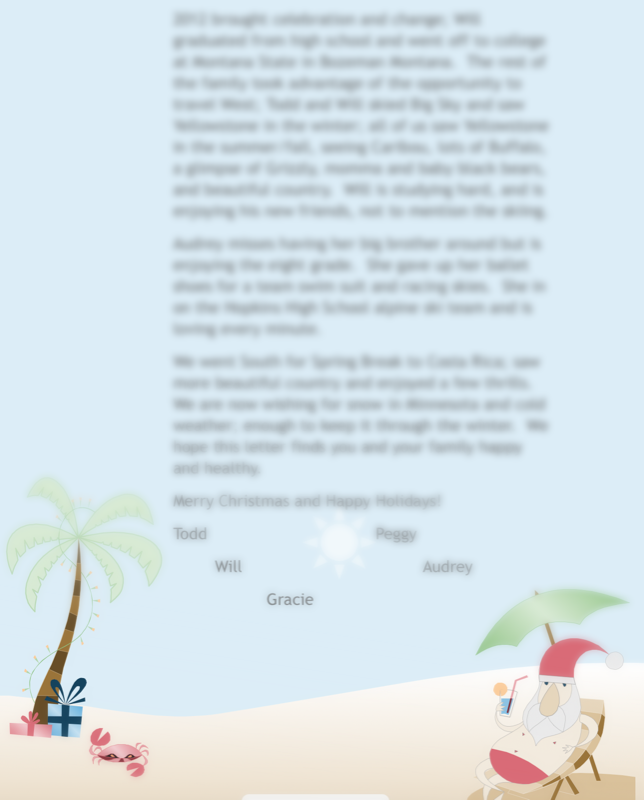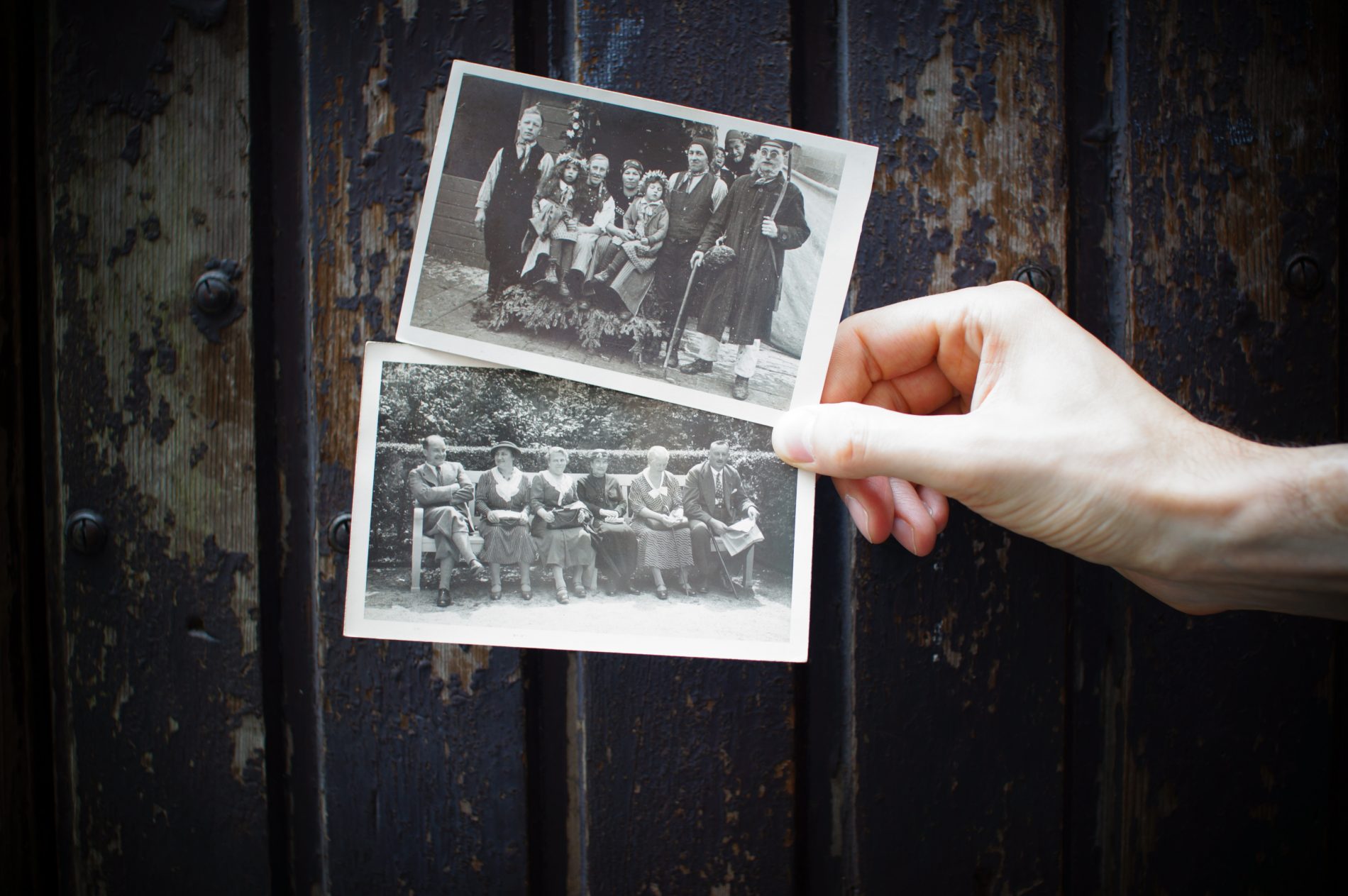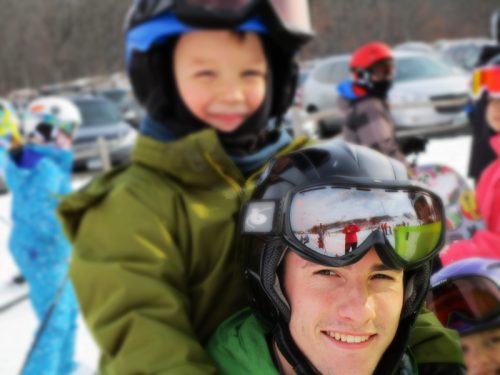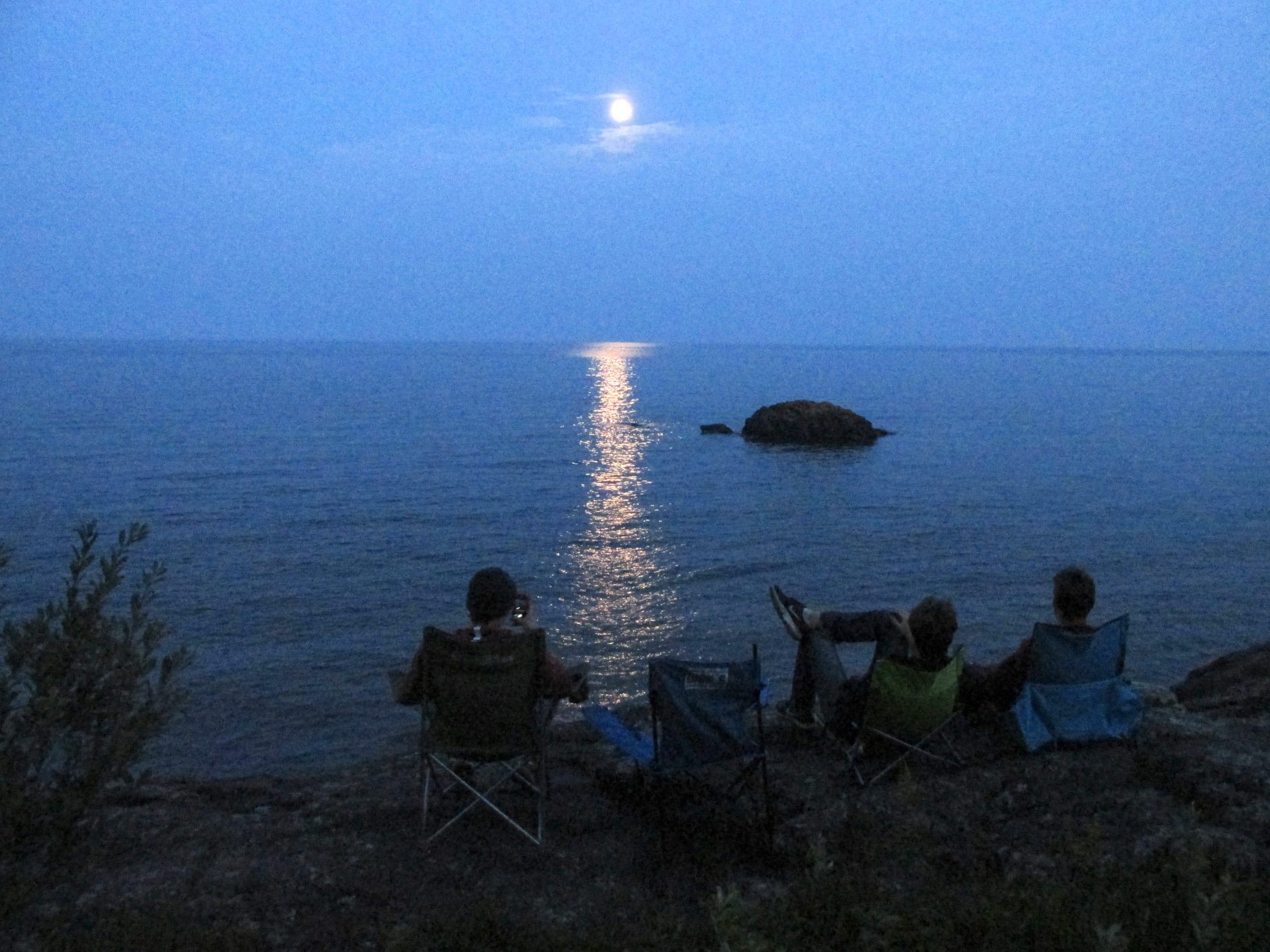After my son’s death, the extended family shared with me their own mental health experiences or their children’s. Right after his death, I was so angry at the world, God, people. How could they not understand; there was no comparison to their situation if they or their loved one is still alive. That is one of the reasons I started this blog, so people could understand what it was like for my family and me to lose a child by suicide. Now, my anger is just general, not directed toward a particular person or thing.
Six months into this new life, I started to keep a mental count of the number of family members with some experience of mental illness, on both sides of my son’s family.
What I have realized, is we do not share, this part of lives, until an unbelievable tragedy occurs. I filled my Facebook and Instagram accounts with the fun and happy parts of my life and my family’s, no different than any other extended family members’. Annual Christmas cards reflected our accomplishments of what our family did that year.
People tend not share their own struggles or their family struggles with mental health until an unbelievable tragedy occurs.
Nature Versus Nurture
I started to wonder if heredity had something to do with my son’s death. I asked my therapist for research material on genetics and mental illness and suicide. I wondered how much is someone predisposed to suicide because of their genetics or is it their social environment (experiences of mental or physical abuse, experiences of trauma or brain damage). So I went to research.
Not every person with a genetic disposition to mental illness will die by suicide or attempt to die by suicide, and not every person who dies by suicide has a known mental illness.
The research I read, all concluded there is a genetic predisposition to suicide, but there are many other factors such as environmental events and when they occurred while the brain was developing. I found an article published by Mayo Clinic in response to a question if genetics has any influence on predisposing someone to suicide. They stated, “Most likely there is a range of genes that affect the connections and pathways within the brain, and impact suicide risk” (Torborg, 2017).
“Complicating matters further, a process called epigenetics1also comes into play when considering the effect of genes on suicide. This process controls when certain genes are turned on or off as a person grows and develops, and it can be influenced by what happens in a person’s environment.” I learned that diet and exposure to pollutants could also impact the epigenome. I wonder if marijuana is considered a pollutant?
Other suicide risks factors that come into play, such as the presence of psychiatric illness and predisposed personality characteristics of impulsivity and anxiety are at a higher risk to suicide (Violette, Turecki, n.d.). Mayo Clinic also concluded that those who die by suicide have a high correlation to psychiatric illness (“mood disorders, psychotic disorders, certain personality disorders, and substance use disorders”) each which have a genetic component as well.
On the flip side, there is a documentary, Three Identical Strangers (Amazon Prime, 2018) about three identical triplets that were separated at six months of age and raised by three different families. The triplets find each other as young adults, but hidden in this true story is a study of nature versus nurture. Nurture wins out, but not really, because there is a tragedy. It is a study of how parenting styles affect the outcome of a child’s life. I encourage you to watch it as it is well done. It is available on most streaming services. Spoiler warning, if you are going to watch it, skip the remainder of this paragraph. The triplets have mental illness on the maternal side of the family. The brother brought up in a strict household, is the one to die by suicide.
Keep in mind, not every person with a genetic disposition to mental illness will die by suicide or attempt to die by suicide, and not every person who dies by suicide has a known mental illness. There is still a lot to learn as researchers have not yet found the specific genes that increase the vulnerability to suicide and the role of environmental influences.
The Holiday Letter
I told a fellow loss survivor mom that I was never going to send out another holiday card. She shared that she continues to send out holiday letters after the loss of her daughter, not missing a year. She is just very honest in telling their family story for that year. When you prepare your holiday letter or photo card, I encourage to you say it like it is, including the hardships, failures, and triumphs. After all, we are supposed to be your family and friends who support each other.

Footnotes
1. The epigenome is made up of chemical compounds and proteins that can attach to DNA and direct such actions as turning genes on or off, controlling the production of proteins in particular cells, (U.S. National Library of Medicine, 2018).
2. Psychiatric illness in this reference is autism, attention deficit-hyperactivity disorder, bipolar disorder, major depressive disorder, and schizophrenia.
References
Three Identical Strangers. Directed by Tim Wardle. Starring Edward Galland, David Kellman, and Robert Shafran. Universal Studios, 2018. Amazon, 2018.
Torborg, L. (2017, April 15) Mayo Clinic Q and A: Suicide and genetics — a complicated association. Retrieved from <https://newsnetwork.mayoclinic.org/discussion/mayo-clinic-q-and-a-suicide-and-genetics-a-complicated-association/>. Viewed on October 2, 2018.
Violette, Richard M.A., Gustavo Turecki M.D., Ph.D., (n.d.). Genetics of Suicide. McGill Group for Suicide Studies. Retrieved from <http://www.suicidefindinghope.com/content/genetics_of_suicide/>. Viewed on October 2, 2018
U.S. National Library of Medicine (October 2, 2018) What is epigenetics? Retrieved from <https://ghr.nlm.nih.gov/primer/howgeneswork/epigenome>. Reviewed on October 2, 2018.
While my son pursued other professions, teaching children may be his calling. I recently had a dream about my son. He was crouching down to children. He said, “I’m doing my work, teaching with the little kids, helping them find their way. I found my purpose.” He is helping young kids, there, in the afterlife.
Our house is on an acre lot with a barrier of woods between the neighbors and us, set back on the top of a hill, with a long, curved driveway. Large oak trees fill the lot.
In the front yard, there are boulder retaining walls, scalloped into the hill. In the backyard, there is a boulder retaining wall the length of the yard, with steps leading down into the woods. These walls and large trees were perfect shields for pretend war games. On the weekends, thirteen and fourteen-year-old boys invaded our house to play versions of Capture the Flag. Parents would drop off their boys donned in camouflage with gear in large duffle bags. Their equipment became more sophisticated with each event such as cooler toy guns and the addition of face guards and shields. They would lay it out on picnic tables in the backyard, then identify their teams, rules, and strategies. His dad and I loved helping my son be a host to all of those boys. Years later, I still would find pebbles in the gardens from their airsoft guns. After my son died, one of the friends’ shared a memory about how great those middle-school times where.
“Roboyto! He would greet me this way every morning through our middle school and high school years. I always looked forward to meeting up with our group of friends before class in the morning, and he never failed at making me feel even more welcome in such a tight-knit group of friends.
I will truly cherish the memories we all made being together at his house for football draft parties, the massive air-soft wars spanning an entire weekend in the summer, and casual get-togethers with plenty of junk food and games. There was always some great guy-food his parents fed us like chicken wings, brats, or burgers. And brownies, these hot gooey chocolate brownies.”
I was honored to be a host for all of his friends.
My nephew, a year older than my son, was married the summer before my son died. We hosted at our house, a brunch for the bride and groom’s families the following day. It was a lovely summer day to sit out on the patio, relax, and play yard games. The youngest cousin, in his middle-school years, brought over his Nerf guns. The Nerf guns are so much more sophisticated than the ones my son had when he was little. The Nerf rapid fire, and shoot far. The cousins, now most young men, picked up where they left off as boys, running through the yard, playing a strategic game of tag. In the game that day, it did not matter the age, young adult or child, they all could connect.
This summer, working in the woods, I found left-over brightly colored foam pellets. I returned the first batch to my nephew. The ones I discovered later, I kept for myself, putting them in a memory box, which is my son’s top dresser drawer.
Shortly after my son’s death, I sent out a request for friends and families to share written stories about him. From the stories, I learned he had a gift to connect with children, of all ages. The first is from his younger cousin who is eleven, thirteen years my son’s junior.
“When I was around six years old, and in the first grade, I thought my cousin looked really cool. He always had a smile on his face and was always interested in what people had to say. I thought he was too cool to approach with, “Hi.” Later, I was growing out of the little kid’s stuff, but too young to even understand what the grown-ups were talking about in their conversations. Mom and Dad suggested I bring my Wii-U Console to my cousin’s house and try to get all of my cousins to play. When it was set-up, I started asking some of my cousins, but none of them were interested… except for one cousin. He came down and challenged me to a round of Super Smash Bros, and crushed me. We both laughed as he destroyed me multiple times, and I realized that I had finally found someone to connect with at family parties. My cousin was willing to spend time with a seven-year-old kid, who didn’t know anything about being in high school or stuff like that. That’s the kind of guy that he is, a funny, kind, and all around cool guy. He is a light that shown brightly it so many ways.”
 My son taught alpine skiing and was a camp counselor and water sports instructor. In hindsight, maybe this was his calling because according to a fellow ski school instructor, my son was a Kid Magnet.
My son taught alpine skiing and was a camp counselor and water sports instructor. In hindsight, maybe this was his calling because according to a fellow ski school instructor, my son was a Kid Magnet.
“I met him while chaperoning the ski school bus. I was immediately impressed with his positive attitude and ability to connect with the children. The kids gravitated to him, and he could get them smiling and laughing with ease. I would often find him giving a piggy back ride or giving good advice to those in need. One of his students was a child of a friend. The two had a lot of fun together in class and on the bus. I will always remember our time working together keeping the kids safe and happy.”
He was able to connect with older kids as well. At a camp in the woods of Pennsylvania, a co-counselor shared a story of a team building activity for their group of teenagers, led by my son, to choreograph a dance routine, and assemble a soundtrack, all in one night. His co-counselor shared, “It was such a great activity and a great night. We won the competition, and it was a great team bonding night for us all.”
While my son pursued other professions, teaching children may be his calling. I recently had a dream about my son. He was crouching down to children. He said, “I’m doing my work, teaching with the little kids, helping them find their way. I found my purpose.” He is helping young kids, there, in the afterlife.
He was not alone. He was with his great uncle, who is a grandfather figure. They had a connection with each other while living, sailing, playing cards, talking, and joking. His uncle is cerebral, and my son loves being philosophical, exploring and inventing. They are now are enjoying each other’s company, being entrepreneurial. While my son is taking care of the young children, his great uncle is looking after him.
I have some comfort that he is with those who love him in the afterlife. They are so lucky to be with him. Parents who have children in Heaven should too be comforted knowing my son is there, taking care of their children.



